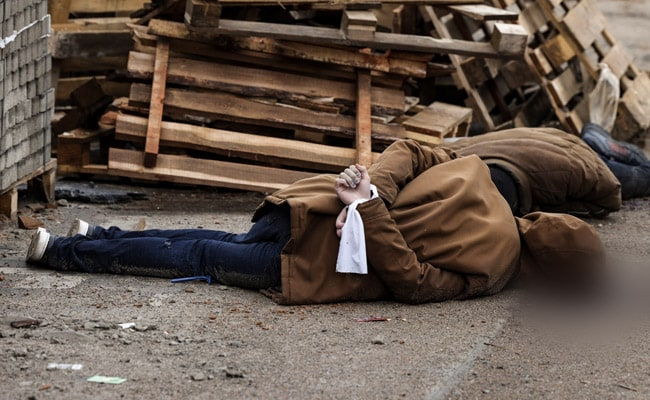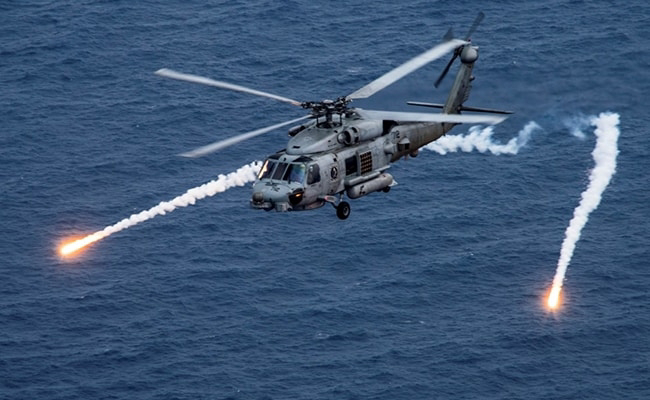Lately Sri Lanka hit a financial dead end to pay for fundamental products like food and fuel, prompting long petroleum lines and everyday 13-hour power cuts.
In front of the November 2019 political decision, Sri Lankan official challenger Gotabaya Rajapaksa proposed clearing tax reductions so wild the officeholder government figured it should be a mission contrivance.
The money serve at that point, Mangala Samaraweera, considered a preparation to pounce upon the "perilous" promise to lessen the worth added assessment to 8% from 15% and scrap different duties. As far as he might be concerned, it was straightforward math: Sri Lanka gathered somewhat less income than almost some other nation, and its high obligation load had constrained it to look for cash from the International Monetary Fund.
"In the event that these proposition are carried out like this not exclusively will the whole nation fail," the priest cautioned, "however the whole nation will turn into another Venezuela or another Greece."
It required around 30 months for his forecast to materialize, in what's turned into a wake up call for egalitarian pioneers exploring through a universe of war, infection and high expansion.
After Rajapaksa won the 2019 political race, resuscitating one of Asia's most remarkable traditions, he passed the tax reduction promptly in his most memorable bureau meeting. He then immediately reestablished official powers held during the 10-year rule of his strongman sibling, Mahinda Rajapaksa, a period that saw the family end an almost three-decade nationwide conflict prior to getting removed in 2015 by a populace careful about expanded mistreatment and obligation to China.
Rather than figuring out how to oversee with greater modesty, Rajapaksa raced to reestablish the family's kind of libertarian dictatorship bound with requests to patriotism among Sinhalese Buddhists, who make up 75% of the populace.
In any case, that methodology immediately blew up. As of late Sri Lanka hit bottom financially to pay for fundamental products like food and fuel, prompting long petroleum lines and day to day 13-hour power cuts. Angry residents consumed portions of bread and scoured the wellbeing service to track down medication. Dissenters have set up camp external the president's office in midtown Colombo for quite a long time to request his abdication.
The Rajapaksa family presently is in full harm control mode, dashing to guarantee essential products for the populace while looking for crisis assets from the IMF, World Bank, China and different loan specialists. It has quit taking care of unfamiliar obligation, defaulting interestingly since accomplishing freedom from the British in 1948. The nation's stock trade, which had taken off after the tax breaks, is the world's most terrible entertainer this year - beneath even Russia.
Likewise, the Rajapaksas have additionally been compelled to withdraw on the two significant approaches it executed after the 2019 political decision. Finance Minister Ali Sabry said the worth added charge should ascend for Sri Lanka to support its funds, and the Rajapaksas have proposed to move back official abilities as adversaries try to reprimand Gotabaya as president and eliminate Mahinda as state head.
"The Rajapaksas are pulling out, yet that doesn't mean they will give up," said Jehan Perera, a paper reporter and the chief head of the National Peace Council of Sri Lanka, an autonomous backing bunch. "The Rajapaksas are anxious about the possibility that that assuming they go, they'll be truly weak both in and outside the country. They face common liberties infringement, allegations of war wrongdoings, and defilement accusations."
For 12 of the most recent 20 years, individuals from the Rajapaksa family have controlled the most elevated spans of Sri Lanka's administration. Under their supervision, pundits in the resistance and the media have considered Sri Lanka a "delicate tyranny" and depicted the Rajapaksas as characters like those evoked by Mario Puzo, who composed the screenplay for "The Godfather."
Gotabaya, 72, a previous protection boss, drove a lethal last push to end the conflict against Tamil separatists, which killed upwards of 100,000 individuals before a truce in 2009. His sibling, Mahinda, 76, the family's political cerebrum, has filled in as president and two times as top state leader. Two different kin, Chamal, 79, and Basil, 71, cut out specialties overseeing ports, horticulture and cash. Many family members hold top posts.
Milinda Rajapaksha, an administration representative, declined to remark for this article.
Namal Rajapaksa - the president's nephew, who as of late surrendered as sports serve - expressed that while the public authority had acquired a terrible economy from the past organization, it likewise made some key strategy mistakes and neglected to turn rapidly when the pandemic hit. The tax reductions, he said, ought to have been changed following a year in light of the fact that the public authority was losing income and not procuring the venture anticipated from nearby organizations.
"There were sure choices that we disagreed on as an ideological group with regards to execution," Namal Rajapaksa said by telephone, adding that the organization ought to have been more straightforward and found opportunity to teach general society on the difficulties. "I don't fault people in general for accusing the Rajapaksa-drove government since they are in power. The public authority is in power, so the public authority is dependable."
"The ongoing circumstance is absolutely founded on the breakdown of the store network and administration," he added. "The president needs to take choices, solidly, and oversee the country. And furthermore get the establishments in the groove again."
Indeed, even before the Rajapaksas took power, the nation was in monetary difficulty. During the family's most memorable spell in office, the public authority took out large credits from China to put resources into projects like a remote ocean port in its home region of Hambantota on the island's southern shore, part of a work to transform the country into a South Asian rendition of Singapore. Yet, many ventures slowed down and unfamiliar obligation dramatically increased somewhere in the range of 2010 and 2020.
In addition, the nation was all the while staggering from fear based oppressor assaults on Easter Sunday in 2019, when self destruction planes connected to the Islamic State killed in excess of 250 individuals in strikes on chapels and lavish inns. The unavoidable dread incited citizens to energize behind the applicant with experience pulverizing insurrections: Gotabaya Rajapaksa.
"There was this presumption that the exit from the post-Easter Sunday droop was tax reductions and low-loan costs," said Anushka Wijesinha, a financial analyst and previous guide to the public authority's service of worldwide exchange and advancement. "It was a misstep."
Fears of a more extensive implosion originally arose with the pandemic, which unexpectedly drained income from the travel industry and settlements. Credit score organizations downsized Sri Lanka. To remain above water, the public authority printed cash, supporting stockpile by 42% between December 2019 and August 2021 - assisting with stirring up what might turn into Asia's quickest expansion.
Last April, Sri Lanka experienced another shock: the public authority suddenly restricted synthetic compost imports. In broad daylight, authorities outlined the move as following through on a mission vow to embrace natural cultivating and battle the "manure mafia." in all actuality, many considered the choice to be an endeavor to save dollars, as per Wijesinha and different business analysts. Namal Rajapaksa said the planning of the compost choice was a place of conflict inside the decision party.
The boycott blew up. Sri Lanka's whole agrarian chain - around 33% of the workforce and 8% of total national output - confronted disturbances. The paddy reap fizzled, compelling the public authority to import rice and begin a costly food help program to help crushed ranchers. Trade income from tea, a key income source, additionally evaporated. In November, as fights erupted, the public authority to some extent switched the boycott.
"Such countless specialists approached and said this is a shocking strategy that will influence food security," said Dhananath Fernando, the head working official of Advocata, a financial arrangement research bunch in Colombo. "Be that as it may, sadly, the public authority was dead set on its choice."
The strategy botches prompted deficiencies of food, power and medication for poor people, and before long incited furious dissenters to hit the roads hollering "Return home Gota!" and "Gota is a lunatic!" The Rajapaksas lost their 66% larger part in parliament as alliance individuals deserted, and they're presently attempting to endure the resistance's endeavors to eliminate them from power.
While the ongoing monetary difficulties make a political race challenging to hold right now, assessment overviews propose the Rajapaksas would lose in an avalanche. The first "Mind-set of the Nation" survey did in January by Verite Research showed that the public authority's endorsement rating remained at simply 10%.
The Rajapaksa government is "trying our degree of tolerance and determination," said Malik Nazahim, 24, who has gone to a few exhibitions. "Pushing us forward "That. We need change and we need it now."




